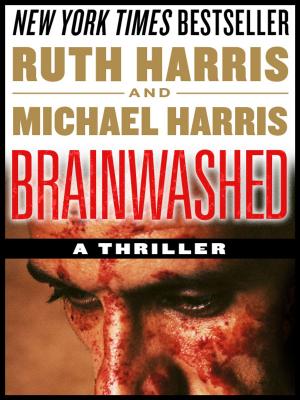The Atomic Times: My H-Bomb Year at the Pacific Proving Ground
Nonfiction, History, Military, Veterans, Nuclear Warfare, United States| Author: | Michael Harris | ISBN: | 1230000119404 |
| Publisher: | Word International | Publication: | April 4, 2013 |
| Imprint: | Language: | English |
| Author: | Michael Harris |
| ISBN: | 1230000119404 |
| Publisher: | Word International |
| Publication: | April 4, 2013 |
| Imprint: | |
| Language: | English |
Catch-22 with radiation.
Area 51 meets Dr. Strangelove.
Except it really happened.
THE ATOMIC TIMES is the absolutely insane, incredibly f*cked-up, but true, eyewitness story of what happened in 1956 on a tiny island in the South Pacific when over 1600 young soldiers (including me) were turned into atomic guinea pigs by the US Army.
Wearing only T-shirts and shorts and without any other protective gear while Army brass and nuclear scientists wore Hazmat suits, we were exposed to radiation and fallout as the United States detonated 17 H-bombs, including the two deadliest explosions ever to occur anywhere on our planet—before or since.
Operation Redwing, the biggest and baddest of America's atmospheric nuclear weapons test series, mixed saber rattling with mad science, while overlooking the cataclysmic human, geopolitical and ecological effects. But mostly, it just messed with guys' heads.
Major Maxwell, who put Safety First, Second and Third. Except when he didn't.
Berko, the wise-cracking Brooklyn Dodgers fan forced to cope with the H-bomb and his mother's cookies.
Carl Duncan, who clung to his girlfriend's photos and a dangerous secret.
Major Vanish, who did just that.
In THE ATOMIC TIMES, Michael Harris welcomes readers into the U.S. Army's nuclear family where the f-words were fallout and fireball. In a distinctive narrative voice, Harris describes his H-bomb year with unforgettable imagery and insight into the ways isolation and isotopes change men for better--and for worse.
"A gripping memoir leavened by humor, loyalty and pride of accomplishment. A tribute to the resilience, courage and patriotism of the American soldier." --Henry Kissinger
"One of the best books I've ever read, combining elements of Catch 22 and Dr. Strangelove in a memoir both hilarious and tragic. A 'must' read, destined to become a classic." --John G. Stoessinger, Ph.D. (Harvard), winner of the Bancroft Prize for International Affairs
"Harris has seamlessly presented a colorful cast of characters, and a shockingly honest depiction of his experience. The effect is at once deeply personal and politically profound." --Senator Charles Schumer
"Harris' frank and disturbing descriptions of the criminally irresponsible proceedings on Eniwetok, and the physical and mental pain he and others endured, constitute shocking additions to atomic history. Amazingly enough, given his ordeal, Harris remains healthy." --Booklist
"Harris uses a chatty, dead-pan voice that highlights the horrifying absurdity of life on the island: the use of Geiger counters to monitor scrambled eggs' radiation level, three-eyed fish swimming in the lagoon, corroded, permanently open windows that fail to keep out the radioactive fall-out and men whose toenails glow in the dark. An entertaining read in the bloodline of Catch-22, Harris achieves the oddest of victories: a funny, optimistic story about the H-bomb." --Publisher's Weekly
From the Author
In 1956, I was an army draftee sent to the Marshall Islands to watch 17 H-bomb tests. An "observer," the Army called it. In plain English: a human guinea pig.
We were told we had to wear high density goggles during the tests to avoid losing our sight but the shipment of goggles never arrived--the requisition was cancelled to make room for new furniture for the colonel's house. We were to stand with our backs to the blast--again to prevent blindness. But the first H-bomb ever dropped from a plane missed its target, and the detonation took place in front of us and our unprotected eyes. Servicemen were sent to Ground Zero wearing only shorts and sneakers and worked side by side with scientists dressed in RadSafe suits. The exposed military men developed severe radiation burns and many died.
For me, finding humor in a tragic situation--the abject military incompetence in planning and executing the H-Bomb tests--freed my memory and allowed me to write about horrific experiences.
My other memoir, about a much happier time in my life, is Always On Sunday: An Inside View of Ed Sullivan, the Beatles, Elvis, Sinatra & Ed's Other Guestsand is also available on Kobo.
Catch-22 with radiation.
Area 51 meets Dr. Strangelove.
Except it really happened.
THE ATOMIC TIMES is the absolutely insane, incredibly f*cked-up, but true, eyewitness story of what happened in 1956 on a tiny island in the South Pacific when over 1600 young soldiers (including me) were turned into atomic guinea pigs by the US Army.
Wearing only T-shirts and shorts and without any other protective gear while Army brass and nuclear scientists wore Hazmat suits, we were exposed to radiation and fallout as the United States detonated 17 H-bombs, including the two deadliest explosions ever to occur anywhere on our planet—before or since.
Operation Redwing, the biggest and baddest of America's atmospheric nuclear weapons test series, mixed saber rattling with mad science, while overlooking the cataclysmic human, geopolitical and ecological effects. But mostly, it just messed with guys' heads.
Major Maxwell, who put Safety First, Second and Third. Except when he didn't.
Berko, the wise-cracking Brooklyn Dodgers fan forced to cope with the H-bomb and his mother's cookies.
Carl Duncan, who clung to his girlfriend's photos and a dangerous secret.
Major Vanish, who did just that.
In THE ATOMIC TIMES, Michael Harris welcomes readers into the U.S. Army's nuclear family where the f-words were fallout and fireball. In a distinctive narrative voice, Harris describes his H-bomb year with unforgettable imagery and insight into the ways isolation and isotopes change men for better--and for worse.
"A gripping memoir leavened by humor, loyalty and pride of accomplishment. A tribute to the resilience, courage and patriotism of the American soldier." --Henry Kissinger
"One of the best books I've ever read, combining elements of Catch 22 and Dr. Strangelove in a memoir both hilarious and tragic. A 'must' read, destined to become a classic." --John G. Stoessinger, Ph.D. (Harvard), winner of the Bancroft Prize for International Affairs
"Harris has seamlessly presented a colorful cast of characters, and a shockingly honest depiction of his experience. The effect is at once deeply personal and politically profound." --Senator Charles Schumer
"Harris' frank and disturbing descriptions of the criminally irresponsible proceedings on Eniwetok, and the physical and mental pain he and others endured, constitute shocking additions to atomic history. Amazingly enough, given his ordeal, Harris remains healthy." --Booklist
"Harris uses a chatty, dead-pan voice that highlights the horrifying absurdity of life on the island: the use of Geiger counters to monitor scrambled eggs' radiation level, three-eyed fish swimming in the lagoon, corroded, permanently open windows that fail to keep out the radioactive fall-out and men whose toenails glow in the dark. An entertaining read in the bloodline of Catch-22, Harris achieves the oddest of victories: a funny, optimistic story about the H-bomb." --Publisher's Weekly
From the Author
In 1956, I was an army draftee sent to the Marshall Islands to watch 17 H-bomb tests. An "observer," the Army called it. In plain English: a human guinea pig.
We were told we had to wear high density goggles during the tests to avoid losing our sight but the shipment of goggles never arrived--the requisition was cancelled to make room for new furniture for the colonel's house. We were to stand with our backs to the blast--again to prevent blindness. But the first H-bomb ever dropped from a plane missed its target, and the detonation took place in front of us and our unprotected eyes. Servicemen were sent to Ground Zero wearing only shorts and sneakers and worked side by side with scientists dressed in RadSafe suits. The exposed military men developed severe radiation burns and many died.
For me, finding humor in a tragic situation--the abject military incompetence in planning and executing the H-Bomb tests--freed my memory and allowed me to write about horrific experiences.
My other memoir, about a much happier time in my life, is Always On Sunday: An Inside View of Ed Sullivan, the Beatles, Elvis, Sinatra & Ed's Other Guestsand is also available on Kobo.
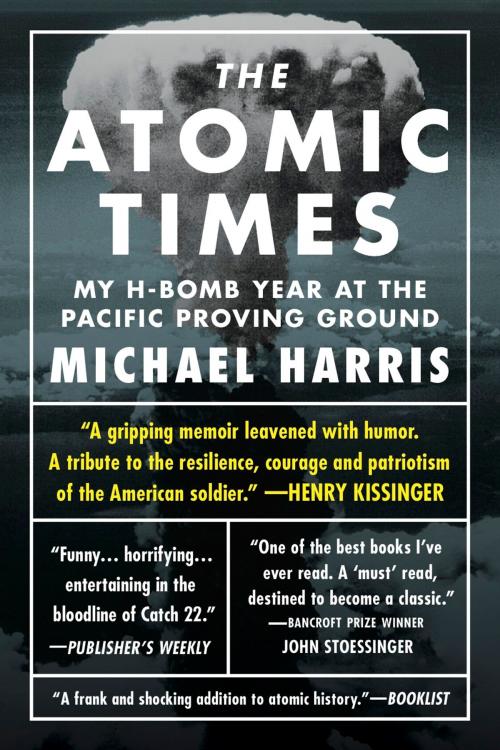
![Cover of the book THE BEATLES AND THE BOMB [Box Set]: The Atomic Times and Always On Sunday by Michael Harris](https://www.kuoky.com/images/2014/april/300x300/1230000230594-gKGc_300x.jpg)

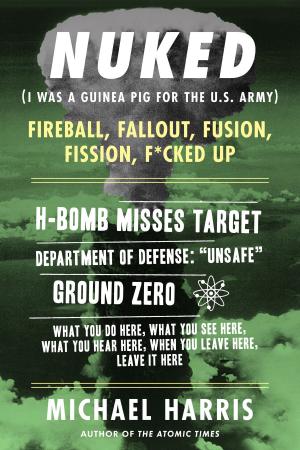


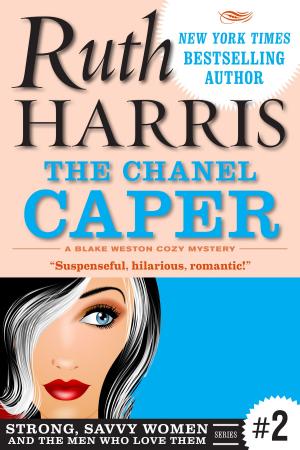


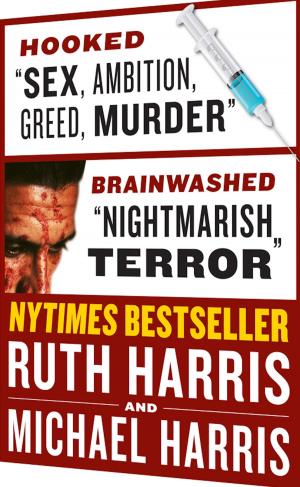




![Cover of the book Strong, Savvy Women...And The Men Who Love Them, Books 1-3 [Box Set] by Michael Harris](https://www.kuoky.com/images/2017/april/300x300/1230001655407-iN34_300x.jpg)
